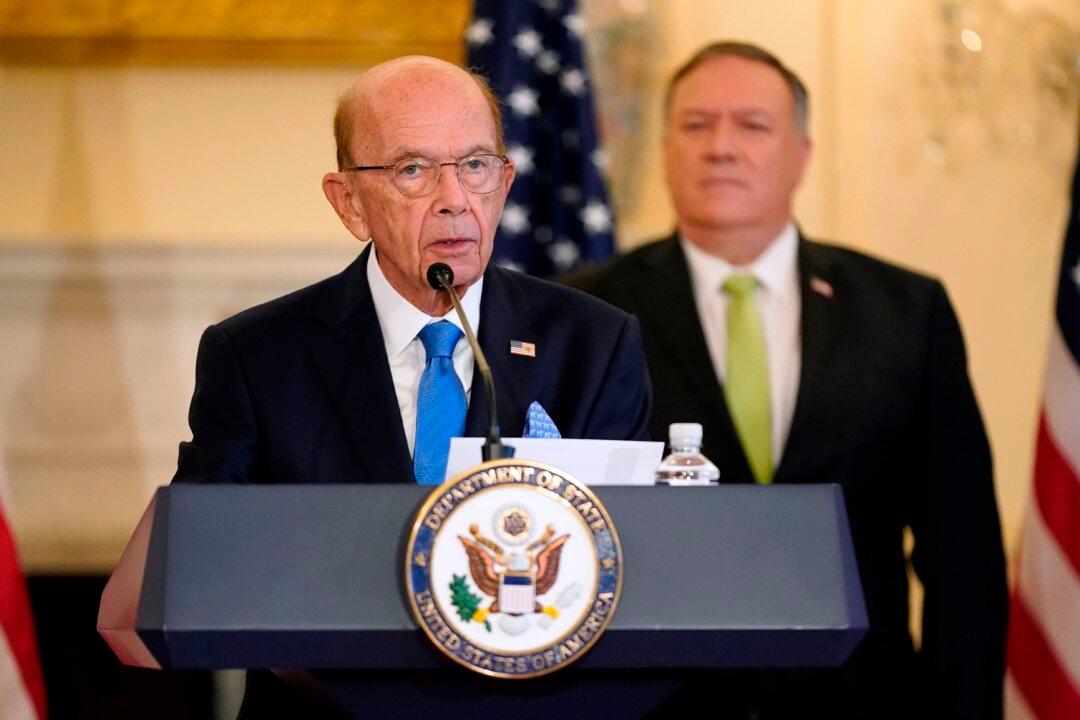The Chinese regime on July 23 imposed retaliatory sanctions against several American individuals, including former U.S. Commerce Secretary Wilbur Ross, in response to U.S. sanctions on Chinese officials involved in Beijing’s clampdown in Hong Kong.
The sanctions are the first imposed by Beijing under its new anti-foreign sanction law, passed in June, and come days before U.S. Deputy Secretary of State Wendy Sherman is due to visit China amid deeply strained ties.





